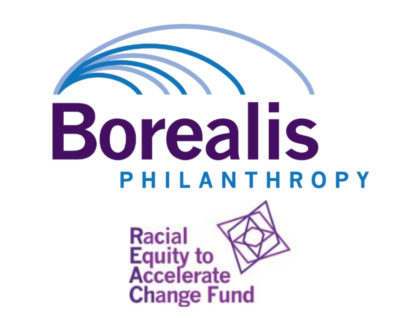YW Boston continues as a grantee of Borealis Philanthropy’s REACH Fund to strengthen racial equity in nonprofits

The value of racial equity work cannot be overstated. YW Boston is excited that Borealis Philanthropy has recognized our vision and impact with their continued support as a part of their Racial Equity to Accelerate Change (REACH) Fund.
Learn more from Borealis Philanthropy’s announcement:
—
REACH Fund at Borealis Philanthropy Awards $1.44M to Strengthen Racial Equity in Nonprofits
The national movement for racial justice has dramatically increased the demand for racial equity practitioners as organizations, staff, and communities reckon with the legacy and ongoing effects of racial injustice and white supremacy in this country. The Racial Equity to Accelerate Change (REACH) Fund grantees have been meeting the moment by providing the necessary tools and strategies to support long-term change in the nonprofit sector.
In addition to increased demand, practitioners are seeing new opportunities to deepen and strengthen their work with organizations ready to upend oppressive systems. “The uprising for racial justice has unleashed the imagination, creative thinking, and the sense of what is possible,” shared REACH Fund grantees Maggie Potapchuk and Gita Gulati-Partee of MP Associates and OpenSource Leadership Strategies, respectively. “This has shifted our work in significant ways. Instead of focusing only on how to incrementally shift white dominant culture, radically new (and old) ways of being and doing are presenting themselves as possible and desirable.”
Amidst this growth in need and the demands on racial equity practitioners, REACH Fund grants are helping practitioners create space for peer learning and capacity building. “Among our most critical tools for upending white supremacy and anti-Blackness in the nonprofit sector is ensuring that our racial equity practitioners continue to be supported, to be compensated, to have the space to be with peers and dig in deeply with both what the barriers to this work are, and to dream up the world we know is possible once we overcome them,” said REACH Fund Program Officer Ain Bailey. “Burnout is real. Organizations asking for change when what they really want is window dressing is real. The experience of trauma or harm that practitioners face in doing this work is real. We can’t ignore these factors, and our grants have to be responsive to the complex realities racial equity practitioners have to face in doing this work.”
REACH invests in racial equity practitioners to support nonprofit organizations with learning and strategy to integrate racial equity into their institutional policies, practices, culture, services, and programs. The REACH Fund directly resources practitioners to provide racial equity consultative services to nonprofit organizations. The Fund also supports learning among practitioners, helping to lift up promising practices, case studies, strategies, frameworks, and tools that facilitate nonprofits’ capacity to have a greater impact on addressing racial inequities, within their organizations and externally in program and service delivery.
The 19 REACH Fund grantees leading this incredible work are:
- Liberatory Culture Consulting Group
- Ana Perez, Latino Racial Equity Project
- Anti-Oppression Resource and Training Alliance (AORTA)
- Bari Katz Inc. & Authentic Coaching and Consulting
- Center for Diversity and the Environment
- Center for Urban and Racial Equity, LLC
- Change Elemental
- Circle Forward
- CompassPoint Nonprofit Services
- Crossroads Antiracism Organizing and Training
- Fierce Allies
- Humboldt Area Foundation
- Interaction Institute for Social Change
- OpenSource Leadership Strategies & MP Associates
- Richael Faithful & Vega Mala Consulting
- RoadMap Consulting
- Shriver Center for Racial Justice
- Western States Center
- YWCA Boston
The REACH Fund welcomes the support of the Chan Zuckerberg Initiative, which announced in May a $1 million gift to the REACH Fund as part of their 5-year $500 million commitment to supporting organizations building systems to advance racial equity. REACH was also awarded a grant from MacKenzie Scott as part of her $2.74 billion investment in 286 organizations supporting grassroots change.
To learn more about the REACH Fund and how to support its work, please contact the Racial Equity Initiatives team at rei@borealisphilanthropy.org.
______
About YW Boston
As the first YWCA in the nation, YW Boston has been at the forefront of advancing equity for over 150 years. Through our DE&I services—InclusionBoston and LeadBoston—as well as our advocacy work and youth programming, we help individuals and organizations change policies, practices, attitudes, and behaviors with a goal of creating more inclusive environments where women, people of color, and especially women of color can succeed.
